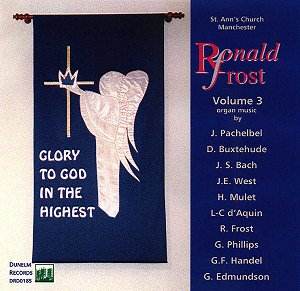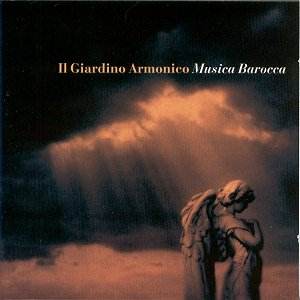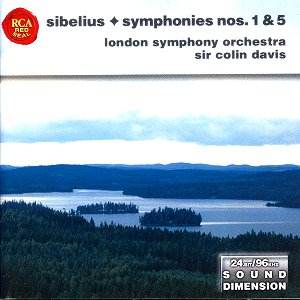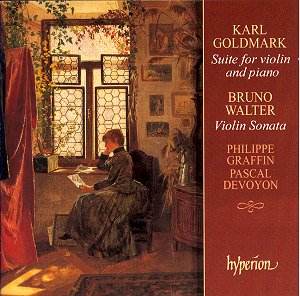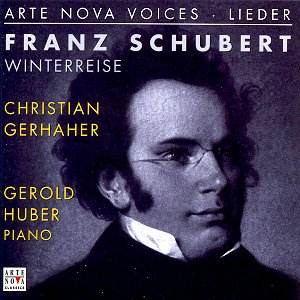 Composer: Franz Schubert
Composer: Franz Schubert
Works: Die Winterreise, D911
Performers: Christian Gerhaher (baritone), Gerold Huber (piano)
Recording: Recorded in Studio 2 of Bavarian Radio, Munich on January 13th-17th and 19th, 2001. [DDD]
Label: ARTE NOVA Lieder 74321 80777-2
Franz Schubert’s Winterreise stands as a monumental exploration of despair and existential reflection, emerging from the Romantic tradition that sought to delve into the emotional core of the human experience. Composed in 1827, this song cycle encapsulates the tormented journey of a heartbroken wanderer, traversing a landscape both physical and psychological. Schubert’s poignant melodies juxtaposed with Wilhelm Müller’s evocative texts create a profound tapestry of grief, longing, and resignation. Christian Gerhaher’s interpretation, accompanied by the insightful piano work of Gerold Huber, arrives in a landscape already rich with illustrious renditions, yet here promises a unique engagement with this masterwork.
Gerhaher’s baritone offers a rounded, rich timbre that conveys a deep sense of world-weariness, inherently suited to the cycle’s overarching themes of desolation and introspection. Throughout the performance, he demonstrates a keen dramatic sensibility, navigating the emotional terrain with a deft touch. His portrayal of desperation in “Die Wetterfahne” is particularly striking; Gerhaher captures the thinly-veiled anguish beneath the surface with remarkable subtlety. The physicality of his interpretation shines in “Rast,” where a palpable sense of fatigue permeates his delivery, allowing listeners to feel the weight of the journey in each phrase.
Huber’s piano playing is a marvel of sensitivity and insight, serving as an ideal foil to Gerhaher’s vocal expression. His accompaniment is characterized by a careful balance, notably in “Gefrorne Tränen,” where Huber’s nuanced handling of the tremolandi prevents it from veering into melodrama, a common pitfall in less discerning performances. The intimacy of their collaboration is further highlighted in “Einsamkeit,” where the interplay between voice and piano creates an evocative atmosphere, drawing the listener deeper into the emotional landscape of the cycle.
While the duo provides a deeply moving presentation of Winterreise, certain interpretative choices may raise questions. “Die Post,” for instance, though superior to earlier recordings such as Olaf Bär and Geoffrey Parsons’ version, feels slightly under-tempo, lacking the infectious rhythmic drive that can elevate this song to a more urgent emotional climax. Similarly, “Der stürmische Morgen” conveys the concept of a tempest but falls short of the gale-force intensity that the title suggests. The critical moment arrives in the final song, “Der Leiermann,” where Huber’s hurdy-gurdy-like textures contribute a haunting quality. Nonetheless, the emotional impact may not resonate as powerfully as in the renditions by historical titans like Dietrich Fischer-Dieskau or Hermann Prey, whose interpretations have set a high bar for this poignant conclusion.
The engineering quality of this recording from ARTE NOVA is commendable, with a clarity that allows the intricate details of Huber’s piano work to emerge without overshadowing Gerhaher’s voice. The studio environment fosters an intimate listening experience, although it occasionally lacks the depth and resonance found in more lavish productions. This recording, while not exceptional, stands as an admirable contribution to the growing catalog of Winterreise interpretations, offering moments of insight and beauty that are worth experiencing.
Gerhaher and Huber’s collaboration is marked by a thoughtful approach that successfully conveys the emotional weight of Schubert’s opus. While it may not dethrone the most revered interpretations, it offers a compelling engagement with this enduring work, reflecting both the artistry of the performers and the profound emotional landscape crafted by Schubert. For those seeking a fresh perspective on Winterreise, this recording proves to be a worthy and moving endeavor.
